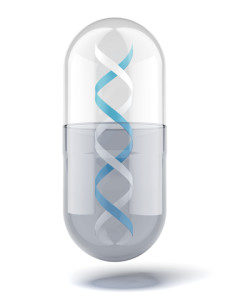Each of us have our own unique genetic profile. So why aren’t our treatment plans tailored to fit us?
Twenty years ago the “one size fits all” approach was pretty standard when it came to prescribing medications. But today with the advances in science, healthcare professionals are able to predict your medication response. This information allows doctors to treat each patient as a unique person and tailor treatment to fit.
Many things influence how our bodies respond to medications. Nutrition, drug interactions, environment and yes, genetics. Knowing our genetics can help create an effective treatment plan customized for each individual.
It has been estimated that genetics can account for 20% to 95% of variability in drug disposition and effects as much as 40-60% of adverse drug reactions.
Pharmacogenetic testing can assist in determining if a particular medication will be effective for you, or potentially harmful.
It can improve your quality of life by helping your provider determine the right drug, at the right dose, for your genetic profile. This helps lower costs on unnecessary medications and reduce the risk of possible side effects. This is important for all patients, but particularly in the long term care setting where elderly adults on average take 8 to 10 medications per day.
Now, more than 130 of the most commonly-prescribed drugs include pharmacogenetic guidance, with many including black box warnings.
PGx Medical focuses on educating and implementing pharmacogenetics in the field of aging services. For more information on pharmacogenetics, contact PGx Medical, info@pgxmed.com or 405-509-5112.
